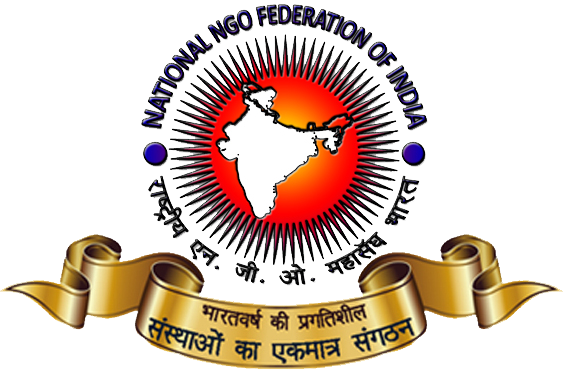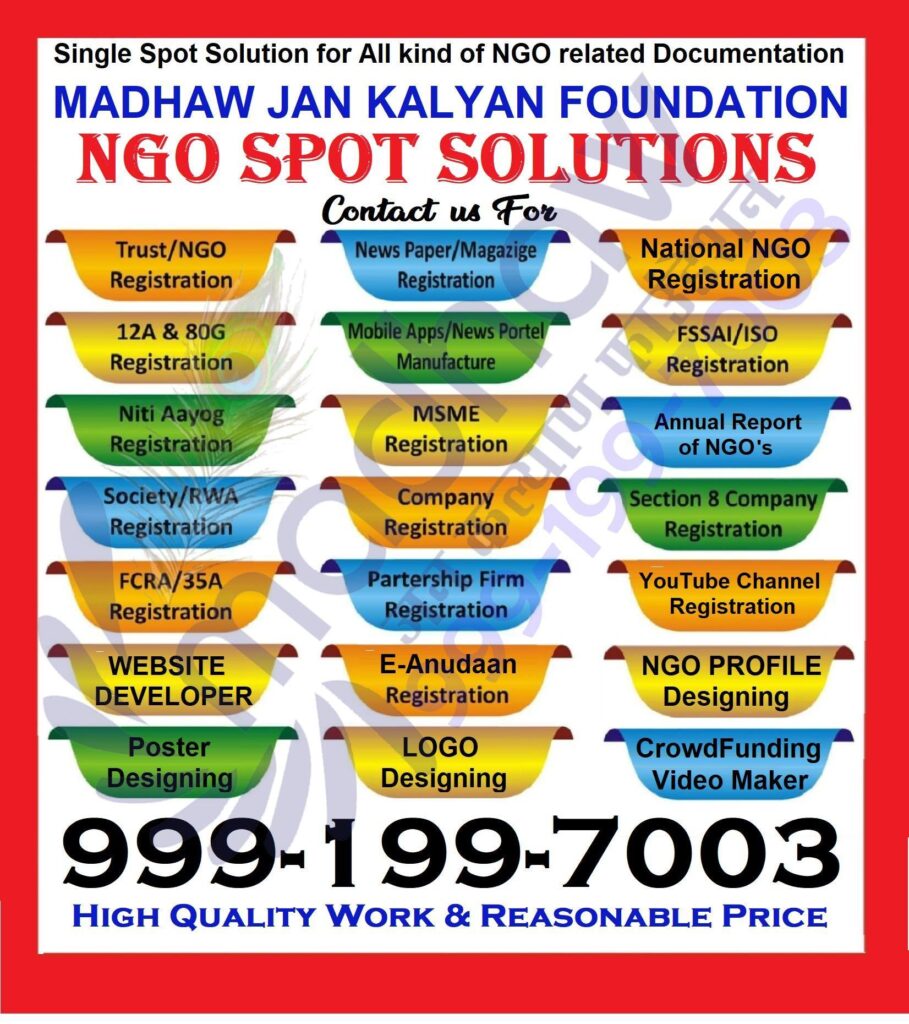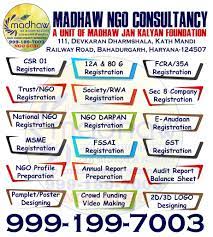NGO Registration
- NGO Registration
- Difference in Company, Society and Trust
- How to Start NGO – Form, Register and Run NGO
- Why to Register NGO
- How to run and manage NGO?
- Society Registration
- Society Registration Process and Procedure
- Name Change Process for Society
- How to Register NGO
- Societies Registration Act, 1860
- Public Charitable trust
- Registration Process of Public Charitable Trust
- After Registering the Public Charitable Trust
- Section 8 Non Profit Company Registration
NGO Resources
- NGO Resources
- NGO & Government of India
- NGO Partnership Registration
- Relations of NGOs with Business and Commerce
- Public Grievances Resolution related to Government
- Social Calendar
- NGO Management
- NGO Support
- What is NGO
- Voluntary Organisations and Volunteerism
- NGOs : Classification, Definitions, Typologies and Networks
- Understanding NGOs
- Can any Government Employee or Officer be the member of NGO?
- Income Exemption u/s 35AC Revoked
- Aims, Objectives & Programmes for NGO
NGO Funding & Grants
- NGO Funding
- Fundraising
- Funding and Grant Schemes
- Govt Schemes
- How to raise Funds for NGO
- Project Proposal Process
- Fundraising Ideas and Concepts
- Funding Agencies
- CSR Funding Empanelment by National CSR Hub
- CSR Funds through Corporate
- CSR Policy, Rules, Regulations and Guidelines of Government
- Government Funding Ministries
- International Funding Agencies
- Google for Nonprofits
- Fellowship
- CSR Funding
- Fund Raising
- Government Funding
- Grant Proposal for NGO Writing Preparation Process
- Project Proposals
Indian Non-Profits
- Andaman Nicobar
- Arunachal Pradesh
- Andhra Pradesh
- Assam
- Bihar
- Chandigarh
- Chhattisgarh
- Dadra Nagar Haveli
- Daman and Diu
- Delhi
- Goa
- Gujarat
- Haryana
- Himachal Pradesh
- Jammu Kashmir
- Jharkhand
- Ladakh
- Karnataka
- Kerala
- Lakshadweep
- Madhya Pradesh
- Maharashtra
- Manipur
- Meghalaya
- Mizoram
- Mumbai
- Nagaland
- Orissa
- Pondicherry
- Punjab
- Rajasthan
- Sikkim
- Tamil Nadu
- Telangana
- Tripura
- Uttar Pradesh
- Uttarakhand
- West Bengal
Daman and Diu is a small union territory located in western India, consisting of two districts – Daman and Diu. The socio-economic status of the region is influenced by its location, history, and demographic profile. The population of Daman and Diu is around 2.2 lakh, with a literacy rate of 87.1%. The region has a predominantly urban population, with around 75% of the population residing in urban areas. he economy of Daman and Diu is primarily driven by tourism, manufacturing and fishing. The region is known for its scenic beaches, historical forts and cultural festivals, which attract a significant number of tourists every year. The manufacturing sector in Daman and Diu is dominated by small and medium enterprises, which are engaged in the production of textiles, plastics, chemicals, and other products. Fishing is also an important economic activity in the region, with Daman and Diu being a major producer of fish and seafood.
Daman and Diu has limited infrastructure, especially in terms of transportation, healthcare, and education. The region is connected to the mainland through a single highway and a small airport, which restricts the movement of goods and people. The healthcare system in Daman and Diu is also limited, with a few government-run hospitals and clinics. The education system in the region is primarily focused on primary and secondary education, with limited options for higher education.
Daman and Diu has relatively good social indicators, with a high literacy rate, low infant mortality rate, and low fertility rate. However, the region faces challenges in terms of gender equality and poverty alleviation. Women in Daman and Diu have limited opportunities for employment and are often subjected to gender-based violence. The region also has a high poverty rate, with a significant proportion of the population living below the poverty line.
The governance structure in Daman and Diu is unique, with the region being administered by a single administrator appointed by the central government. The lack of local representation and limited autonomy of the administration has hindered the development of the region.
To improve the socio-economic status of Daman and Diu, there is a need for greater investment in infrastructure, education, and healthcare. The government can also promote the development of the manufacturing and tourism sectors, which have the potential to generate employment and income. NGOs can also play a role in promoting socio-economic development in the region by working in areas such as education, health, gender equality, and poverty alleviation. By collaborating with government agencies, private sector actors, and local communities, NGOs can help improve the socio-economic status and well-being of the people of Daman and Diu.
Non Governmental Organisations (NGOs) in Daman and Diu are working on a range of issues to promote sustainable and inclusive development. NGOs are working to improve access to quality education in Daman and Diu, especially for underprivileged children. This includes setting up schools, providing scholarships and educational materials, and conducting training programs for teachers. NGOs can work to improve access to quality education, particularly for underprivileged children.
NGOs are working to improve access to healthcare services in Daman and Diu, especially in rural and remote areas. This includes setting up health clinics, conducting health awareness campaigns, and providing training to healthcare workers. NGOs can work to improve access to healthcare services, particularly in rural and remote areas. They can conduct health awareness campaigns.
NGOs are working to promote sustainable livelihoods for communities in Daman and Diu, especially for those engaged in fishing and agriculture. NGOs can work to promote sustainable livelihoods, particularly for communities that rely on agriculture or fishing. They can provide training in modern farming techniques, support the establishment of farmer cooperatives, and promote value addition and marketing of agricultural produce.
Non Governmental Organisations are working to promote environmental sustainability in Daman and Diu, which is vulnerable to climate change and natural disasters. This includes advocating for sustainable tourism practices. NGOs can work to promote environmental sustainability, particularly in areas that are vulnerable to climate change and natural disasters. They can promote renewable energy, work to sustainable tourism practices and promote waste management and recycling.
Non Profit Organisations are working to promote gender equality and women’s empowerment in Daman and Diu, which is important for achieving sustainable development. NGOs can work to promote gender equality and women’s empowerment, which is important for achieving sustainable development. They can provide training and resources to women entrepreneurs, promote women’s health and education, and address gender-based violence.
In summary, NGOs in Daman and Diu are working on a range of issues to promote sustainable and inclusive development, including education, health, livelihoods, environment, women’s empowerment and disaster management. By collaborating with G agencies, private sector actors and local communities, NGOs can help improve the socio-economic status and well-being of the people of Daman and Diu.
By addressing these and other issues, NGOs can help improve the status of society by promoting sustainable and inclusive development. To be effective, NGOs should work in collaboration with government agencies, private sector actors, and local communities, and tailor their interventions to local needs and priorities.
Non Government Organisations, Non Profit Organisations Daman and Diu, NGOs in Daman and Diu, NPOs in Daman and Diu




